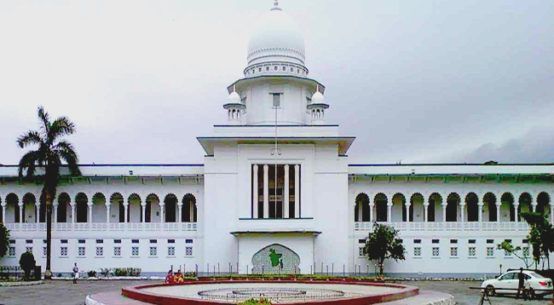The Centre for Policy Dialogue (CPD) highlighted some concerns about the FY25 budget during its Budget Dialogue 2024-25 Wednesday. They pointed out that the budget doesn’t seem to align with key economic indicators like GDP, inflation, and private investment, which could lead to missed targets.
The discussion also shed light on issues like institutionalized corruption, where the tax burden on regular taxpayers contrasts sharply with lenient measures for whitening black money.
Former Planning Minister MA Mannan emphasized that it is necessary to identify where the budgetary allocation is spent and how the people are getting in return.
He said this while speaking as the chief guest at a dialogue on the national budget for FY2024-25 organised by Center for Policy Dialogue (CPD), held at a hotel in the capital.
Talking about 10 years of experience in project implementation, Mannan said, “Where we are spending in the budget, what we are getting from there – these things need to be judged. Whether getting any return or not, needs to be seen.”
He said, “I had been involved in project implementation for about 10 years. I had many personal objections to many projects.”
The CPD Executive Director Dr. Fahmida Khatun said that the budget did not see much action in these two aspects of reducing the inflationary pressure and trying to maintain the foreign currency depreciation.
She said that the targets given in the economic indicators in the budget are not feasible in the current economic context.
Fahmida Khatun, emphasized that the projected economic indicators for FY25, such as inflation rate and GDP growth, seem overly optimistic and fail to reflect current realities. For instance, while the GDP growth target for FY25 is set at 6.8%, public investment is expected to decrease from 7.5% to 6.1%, and private investment is anticipated to rise significantly from 23.5% to 27.3%.
However, the growth of credit in the private sector, crucial for stimulating investment, is targeted at 9%, down from the previous year’s 10%. This discrepancy raises doubts about achieving the GDP growth target, especially when private sector credit growth in April 2024 was already at 9.9%.
The inflation projection for FY25 also seems overly ambitious, adding to the concerns raised about the budget’s feasibility.
The budget expected inflation to fall drastically to 6.5% in FY25. In FY24 it was projected at 8%, and the entire FY24 experienced higher inflation over 9%.
She also said, high food inflation has put pressure on the livelihood of poor people, yet the amount of food aid has been reduced in the budget.
“The government set remittance growth at 7% in FY25, which was 10% in FY24. and till July-May FY24 it was 10.1%, so we believe it is achievable.”
The target for foreign exchange reserves in FY25 is set at $32 billion, but it was only $29.1 billion in FY24.
However, as of June 5, 2024, the reserve stood at $24.2 billion. Despite this, the exchange rate for FY25 is planned at Tk114, while on June 5, 2024, it was Tk117.9. This raises questions about how the reserves will grow if the taka appreciates in FY25.
The budget aims to raise the growth target, but achieving this requires increased investment to boost production. However, reaching an investment target of over 27% of GDP seems challenging. Moreover, export growth from July to May of the current fiscal year has been a mere 2%, while the proposed budget sets a growth target of 8%, leaving doubts about its feasibility.
Anisul Islam Mahmud, deputy leader of the opposition in the Bangladesh Parliament, highlighted syndication as a significant contributor to inflation. He emphasized the need for caution in this area, stating that inflation cannot be curbed solely through monetary and fiscal policies. He also pointed out the government’s inefficiency in managing electricity prices, which further fuels inflation.
Mahmud criticized the government for sponsoring corruption, noting the lenient measures like a 15% tax rate and complete amnesty for whitening black money, which institutionalize corruption.
MA Mannan, chairman of the Parliamentary Standing Committee on the Ministry of Planning said that it should be considered whether the government budget is being properly spent on the implementation of the project and ADP. But one must remember that inflation is a by-product of growth. Again, while inflation is increasing, wages are also increasing at the same time.
By appreciating the government, he also said, During the tenure of this government, we have seen that electricity has reached every house, there are community clinics in upazilas and at the same time a lot of achievement has come in agriculture.
Kazi Nabil Ahmed, chairman of the Parliamentary Standing Committee on the Ministry of Posts, Telecommunications, and Information Technology, addressed the audience as a special guest. He emphasized the multifaceted nature of the budget, urging against assessing it solely on one aspect. For instance, he highlighted how education funding is spread across various sectors, including training programs that empower youth and contribute to our economy by attracting foreign currency.
Using the metaphor of a half-full or half-empty glass, Ahmed emphasized the importance of perspective. Despite not being self-sufficient in agriculture, he noted that Bangladesh has achieved notable rankings in various agricultural product categories.

